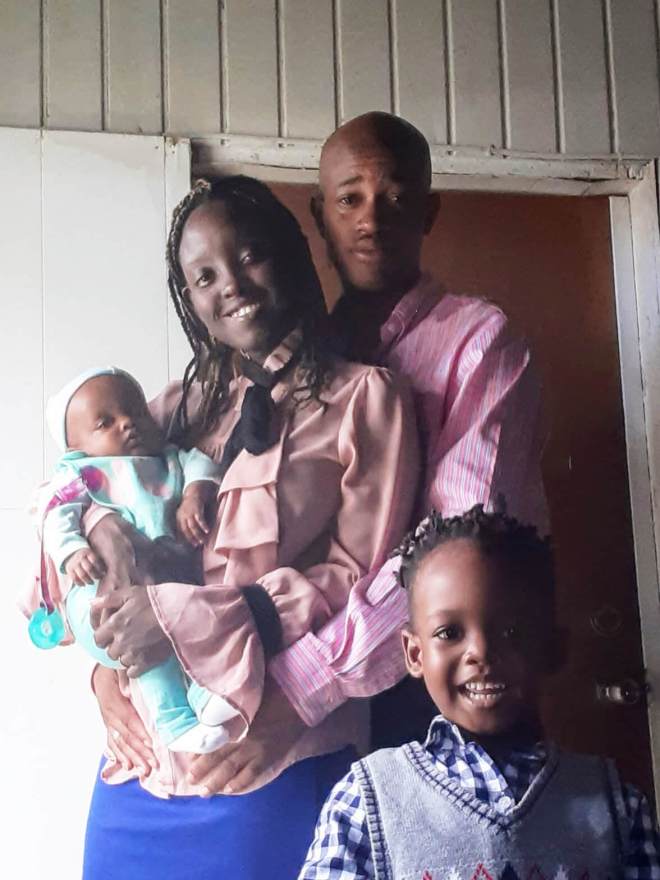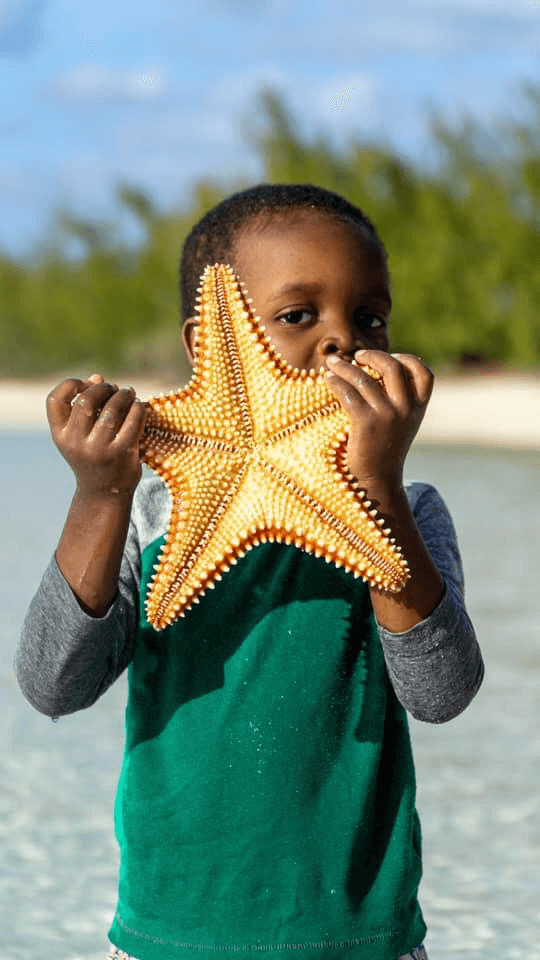
UMCOR international response – Hurricane Dorian
By Christie R. House
May 15, 2020 | ATLANTA
Hurricane Dorian struck the Bahama Islands as a Category 5 storm on Sept.1, 2019, and continued a slow but destructive crawl over the islands for two days before it finally shifted to the North on Sept. 3. This level of devastation to the islands of Grand Bahama and Abaco had never been experienced before.
“At the time of Dorian, I was 36+ weeks pregnant,” said Dwanika Louis, who lived with her husband and 3-year-old son, Jabez, in a rented efficiency apartment in Central Grand Bahama. “We weren’t expecting to get flooded out, since we were on a hilltop. The experience was quite traumatic and scary, especially for our son. We had to walk through the flood and the rain, and water splashed fiercely against my son’s face as my husband carried him through the rising water.”
The Louis family, at first listed as missing, was evacuated to the Island of Eleuthera, where they stayed with friends. But then Dwanika Louis went into labor and decided to go to the capital, Nassau, on New Providence Island, to deliver the baby. When she returned with the newborn, they moved into the Camp Symonette evacuee shelter.
Camp Symonette is a mission volunteer camp of the Bahamas Conference of the Methodist Church. Just days after Hurricane Dorian struck, the camp was converted into an emergency shelter and began receiving evacuees. The United Methodist Committee on Relief issued a solidarity grant to help the Bahamas Methodist Habitat, the Bahamian church’s service agency, pay for food, utilities and basic human needs.
Jabez Louis received support from a counselor at the Camp Symonette shelter after he developed a fear of water following the trauma of the hurricane. His mother said it took six months, but, with help from his counselor, Jabez’ fear subsided. Now, he even goes down to the beach to explore the water. The family currently resides in Eleuthera in their own apartment.
UMCOR also provided a solidarity grant for the Bahamas, Turks and Caicos Islands Conference of the Methodist Church in the Caribbean and the Americas for food and hygiene support in Freeport, Grand Bahama, where an emergency food pantry was expanded at St. Paul’s Methodist Church.
Helping families find new homes
With many in the same situation as the Louis family, Bahamas Methodist Habitat developed a relief project* to help Eleuthera-based evacuees rebuild new households with essential nonfood items and furniture. Hurricane Dorian destroyed about 45% of the homes on Grand Bahama and Abaco islands.
This project, supported by another UMCOR grant, aims to sustainably meet survivors’ basic needs related to Water, Sanitation and Hygiene (WASH), food preparation and storage, beds and bedding, and medical needs. With these immediate needs addressed, families are able to focus on other aspects of recovery.
As the Louis family discovered, psychosocial support and community building is a vital part of recovery. The Post Hurricane Dorian Eleuthera Evacuee Support and Recovery Assistance project hosts Dorian support workshops to help with paperwork for benefits and employment resources, child and family friendly activities, and psychosocial support in group and individual contexts.

Sustainable groundwater management
In addition to the obvious aboveground damage on Grand Bahama and Abaco, storm surges flooded the land and seeped into the fragile freshwater systems underground. The mix of salt water with fresh water, along with debris and wastewater, made well water, the main water source on the two islands, undrinkable. In addition, without electricity, well pumps ceased to function.
Currently, the only way most people on the two islands receive drinking water is from trucks delivering potable water to their communities. This short-term emergency response must be addressed with permanent water solutions.
IsraAID, an international humanitarian nongovernmental organization based in Tel Aviv, has been on the scene in the Bahamas since Sept. 5, 2019, providing emergency relief, assessing needs and developing plans for long-term solutions.
UMCOR directors approved a grant for nearly $500,000 for Dorian recovery related to WASH, training of local water authorities and community outreach to enhance public trust in and knowledge of their water system. Operating on Abaco and Grand Bahama islands, the goal is to provide a disaster-resilient water infrastructure that is cost efficient and managed by local communities. IsraAID, coordinating with local partners, will partner with UMCOR on this important project. Once complete, the project should provide clean water to all 70,000 residents of the islands*.
After conducting hydrological surveys on the two islands, IsraAID will work with local water authorities to assess areas previously used for freshwater production, areas currently in use, and potential new areas with good water quality and low salinity. Water authorities will receive training to maintain the underground water monitoring and management network.

Six water professionals selected by each of the two island water authorities will also receive the training. Eight new observation wells drilled on each island will equip the water authorities with the tools and knowledge needed to monitor water quality and quantity.
Community outreach will be accomplished in partnership with local institutions, which include outreach through schools, churches, and other cultural and social organizations*. Topics planned are household water treatment options, WASH risks in emergencies and the importance of water conservation.
Little Jabez was just one of many Bahamians traumatized by the destructive force of the storm. But fear can be replaced with healthy respect once a community comes together to assess the damage, understand what can be controlled and learn ways to build stronger infrastructure. Changing community members’ perspectives and providing reassurance that they can meet and surmount their challenges is an important component for making the islands feel like home again.
Christie R. House is a writer and editorial consultant with Global Ministries.
* UMCOR and its partners in the Bahamas are currently assessing the impact of the COVID-19 pandemic and a Bahamas emergency declaration on planned project activities. Fulfillment of grants may be delayed because of current financial challenges related to COVID-19 response. Projects will get underway as the health and financial situations improve.

